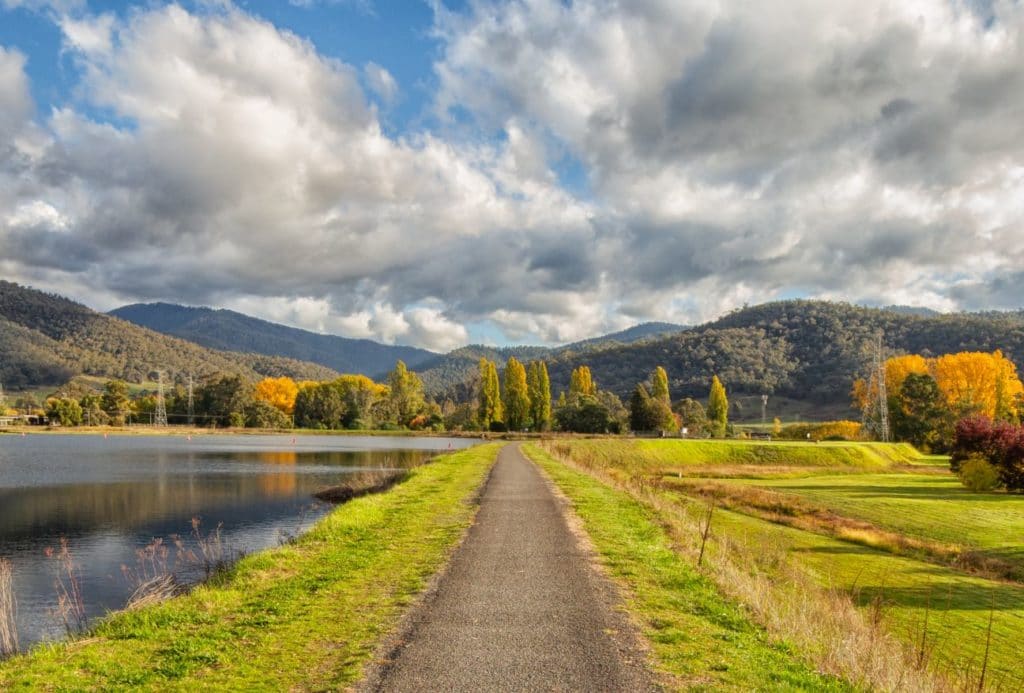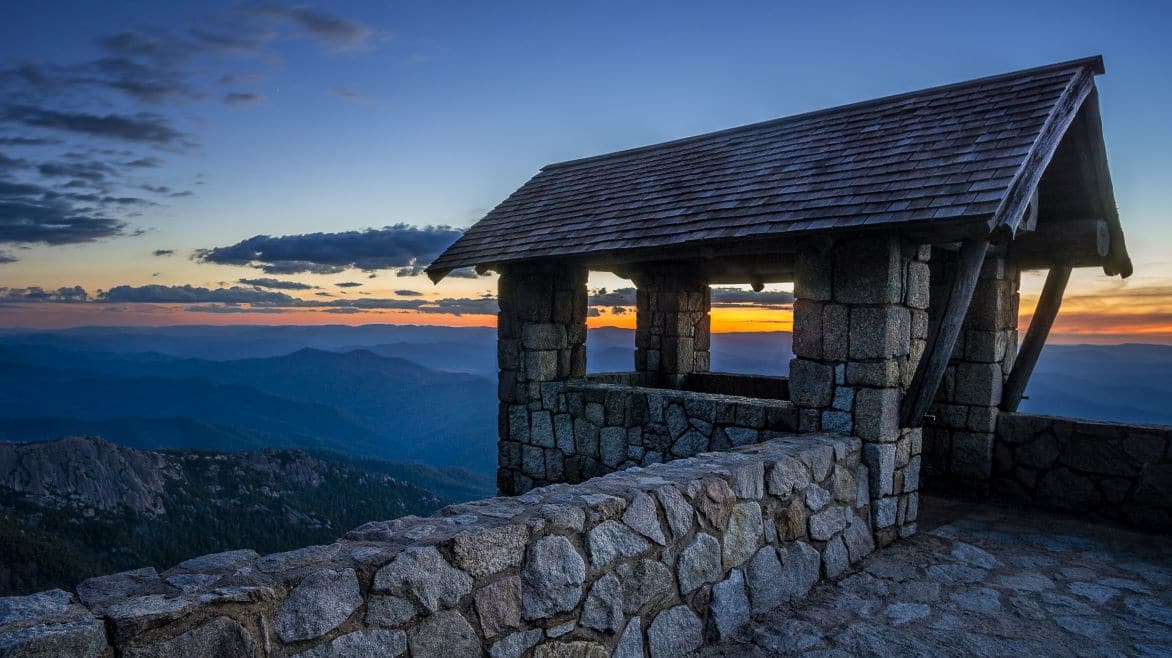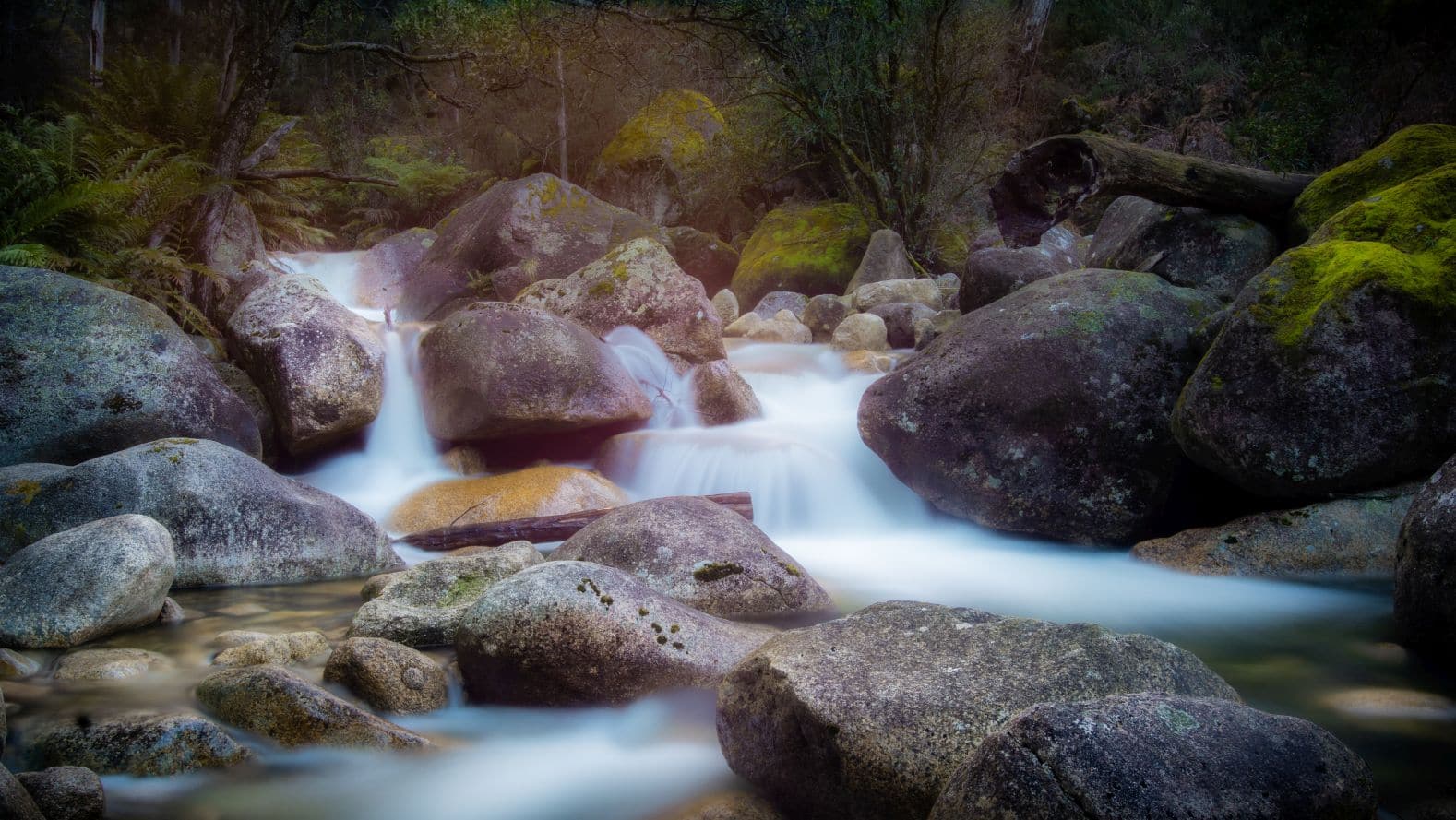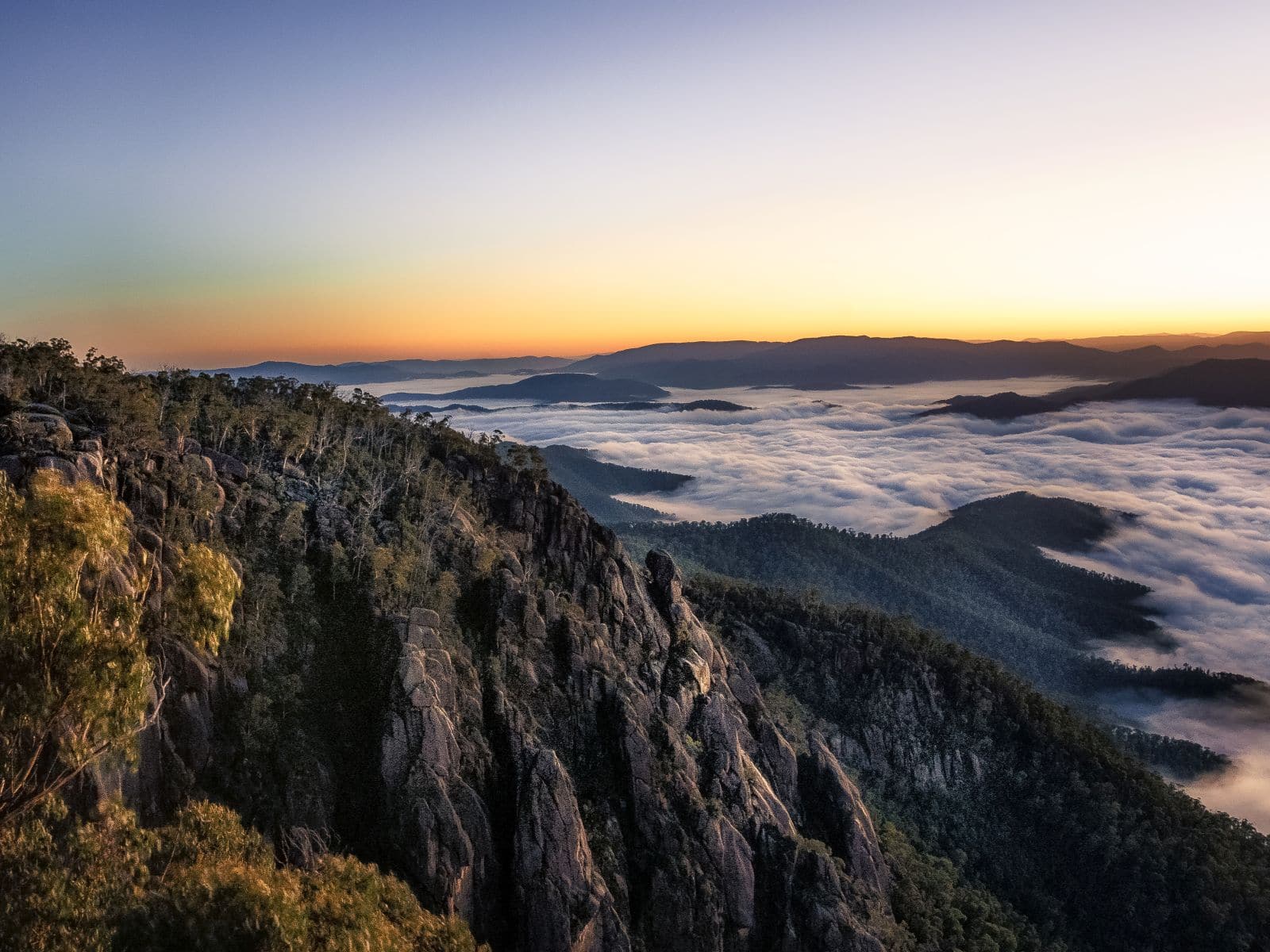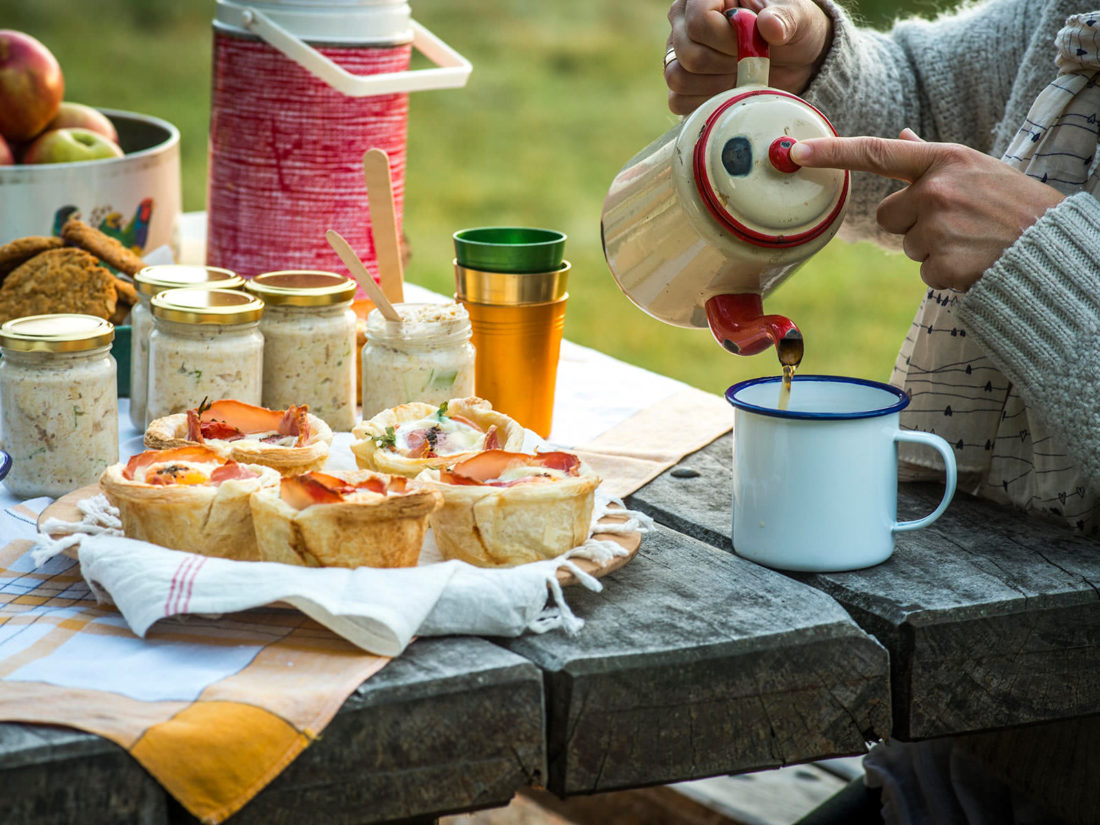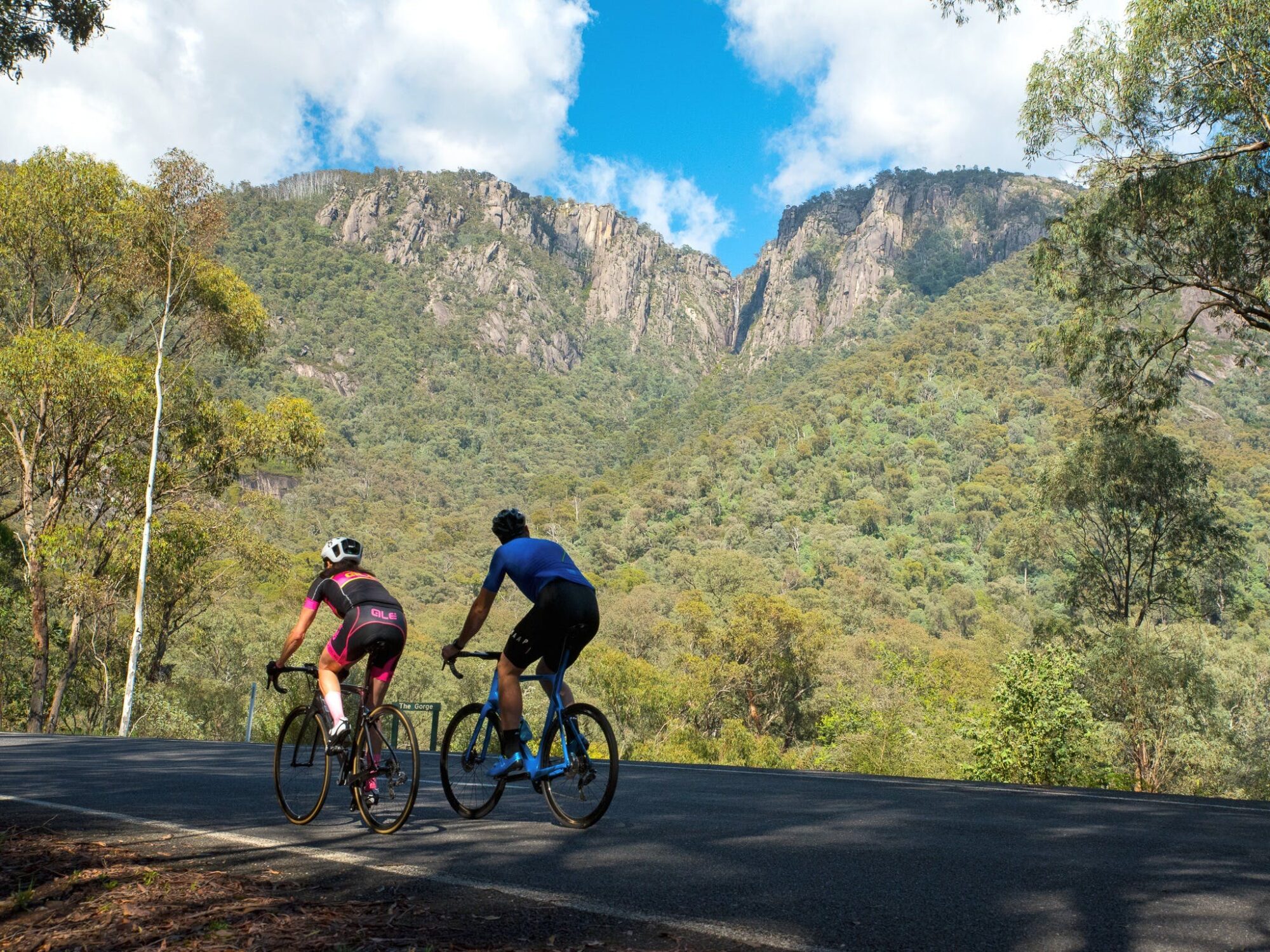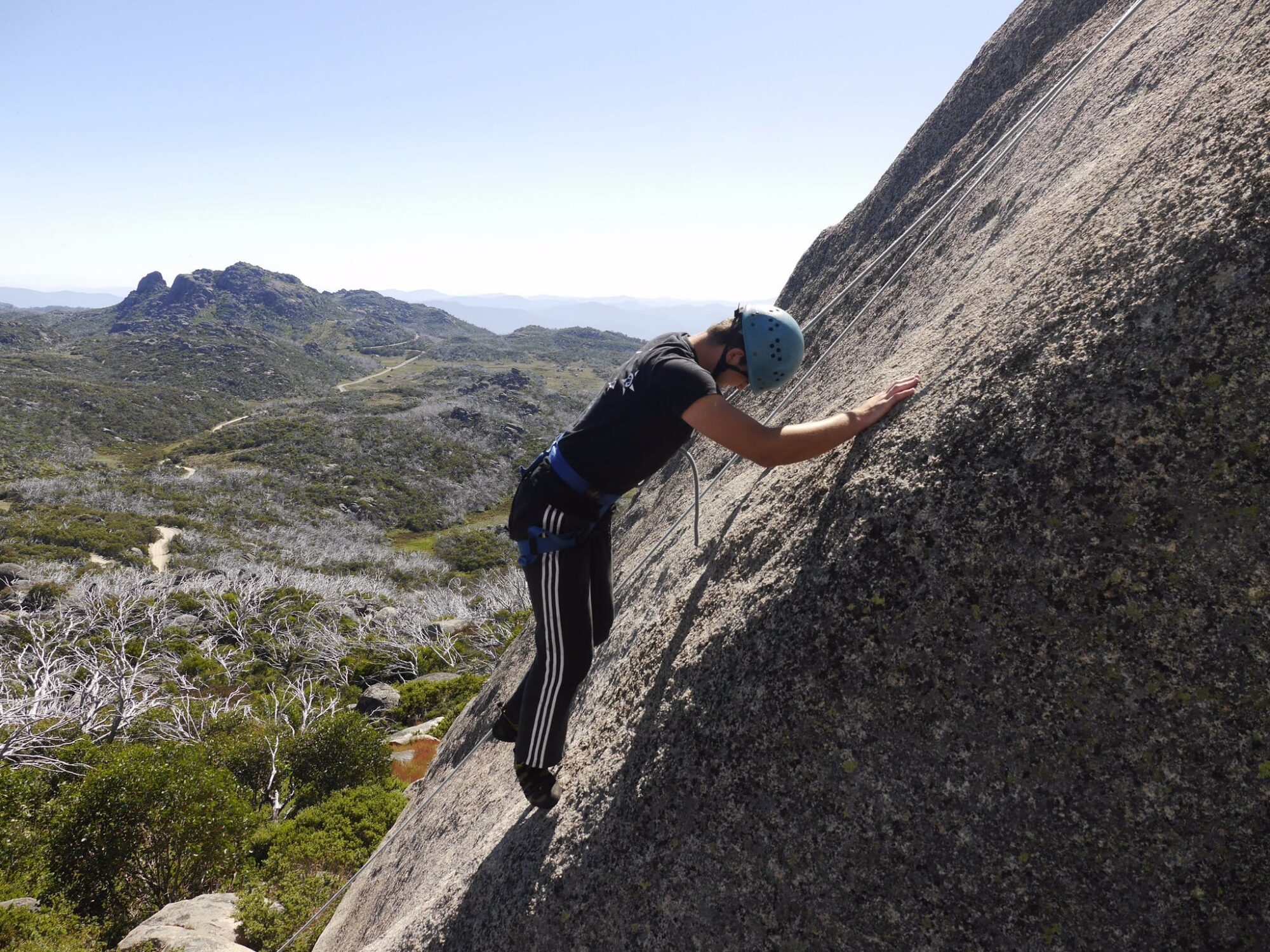MOUNT BUFFALO NATIONAL PARK
Sheer granite cliffs that plunge 300m to the gully below, mystical boulders strewn across the plateau, snow gums and waterfalls, canyons, crevices and caves, winter snow and summer wildflowers – Mount Buffalo is a truly special natural wonder of the Australian landscape. Throw in 360º views of the Australian Alps and the country's largest wooden building – the heritage-listed Mount Buffalo Chalet – and you've got a destination that should be high on everyone's bucket list.
AKNOWLEDGEMENT OF COUNTRY
We acknowledge the Taungurung as the First Peoples and Traditional Custodians of the area called Mount Buffalo National Park.
Bright & Surrounds recognises the ancient and continuing presence of the Taungurung on these lands and their important role as caretakers of this Country.
We pay our respect to their Elders, past, present and emerging.
THE PARK
Mount Buffalo National Park is one of the oldest National Parks in Australia, with its protection dating back to 1898 when 1,166 hectares around The Gorge and Eurobin Falls was reserved. The land under protection has since grown to 31,000 hectares, ensuring 550 species of native plants, including the Buffalo Sallee tree that only lives on this one mountain, as well as other rare alpine and subalpine flora are cared for and preserved.
Mount Buffalo's mesmerising plateau of granite boulders is also home to many native animals, such as wombats, lyrebirds, kestrels, alpine dingoes, possums, sugar gliders, kangaroos and wallabies. Some species, like the alpine silver xenica butterfly, live solely on this plateau.
An easy 35km drive from Bright or 50km from Myrtleford, visitors to Mount Buffalo will find more than 90km of walking tracks to explore as well as guided outdoor adventure activities, picnic areas and a camping area with BBQ and toilet facilities at Lake Catani. Campsite bookings are essential.
Apart from its rich cultural and environmental importance, Mount Buffalo has a colourful history as Australia's first ski resort. The Mount Buffalo Chalet – Australia's largest wooden building – still stands to this day, awaiting to be resurrected to its former glory. The oldest part of the Chalet was built in 1910 and was a popular tourist destination until as recently as 2007. Visitors are welcome to peer in its windows at the informative displays that depict a bygone era.
PARK ACCESS
Please note, dogs CANNOT be taken into the National Park - fines apply
Day visits to Mount Buffalo National Park are free. Sealed-road access to the park is via Mount Buffalo Road, which starts in Porepunkah and climbs all the way to the base of the park's highest feature, The Horn at 1,723m. The road provides easy access to the park's main features, including waterfalls, lookouts, toboggan slopes, cross-country ski trails and Mount Buffalo Chalet. The section of road beyond the Cresta Valley toboggan slope closes to vehicles in the snow season, instead becoming a groomed cross-country ski and snowshoe trail to The Horn. Additionally, there are a number of 4WD tracks that run through the park and along its outskirts.
For those looking to hike in, The Big Walk is a 22km return walk that starts near the entrance to the park at the base of the mountain and edges its way up to The Gorge picnic area and lookout near Mount Buffalo Chalet.
WHEN TO VISIT
Mount Buffalo National Park is a wonderful destination anytime of year. Its cool alpine air makes for a refreshing escape from the valley heat in summer, when clear skies reveal stunning views of the Australian Alps. Summer's long days provide plenty of time for hiking and swimming or outdoor adventure activities like rock climbing, abseiling and caving.
As Autumn descends, so does the fog in the valley, creating an opportunity to climb above the clouds for dreamlike views from The Gorge Lookout.
Winter brings the snow. Dingo Dell and Cresta Valley are filled with the laughter of excited children tobogganing, building snowmen and learning to ski, while – when natural snowfalls allow – more adventurous skiers can be found backcountry or on the groomed cross-country ski trails that branch out from Cresta. There is no park entry fee to experience the snow here, making it an affordable destination and is especially popular among families with small children.
Spring rains and snowmelt see the mountain's many easily accessible waterfalls roar to life and as the days warm up, nature begins its cycle all over again.
TOP 10 THINGS TO DO ON MOUNT BUFFALO
1. The Gorge Lookout & Chalet
Stand atop a 200m granite cliff at an elevation of 1,385m and look down to the Ovens Valley and the alpine peaks beyond. Picnic by the Chalet and walk the Gorge Heritage Walk to stand above Crystal Brook Falls.
2. Ladies Bath & Eurobin Falls
Enjoy a short walk to Ladies Bath and Eurobin Falls: two very different, but equally as beautiful waterfalls on the lower slopes of the mountain.
3. The Horn
Summit the highest point of Mount Buffalo on The Horn Track and be rewarded with sublime 360° views of the Australian Alps.
4. Lake Catani
Camp at the scenic Lake Catani, refresh with a swim and experience the sunsets, sunrises and night sky like never before.
5. Snow
Visit in snow season and go tobogganing beneath towering granite boulders at Dingo Dell or Cresta Valley, or maybe explore the twisted snow gums or climb to The Horn on a snowshoeing or cross-country skiing adventure.
6. The Cathedral
A favourite with photographers, the short but steep 2km-return Cathedral - Hump Track takes you to the summit of The Hump (1,695m) with picture-perfect views of The Cathedral granite tor, particularly at sunset or sunrise.
7. Clifftop Picnic
Enjoy the view from a clifftop picnic lunch while hanging over the side of a cliff 300m above the valley floor.
8. Rollasons Falls
Take a 4km return walk down to the scenic Rollasons Falls and its lower rock pool.
9. Abseiling & Rock Climbing
Explore the cliffs from a different angle with one of the accredited outdoor adventure guides on the mountain.
10. Caving or The Galleries
Go on a guided caving adventure to an underground river, or go it alone and squeeze through the cracks on the Galleries Chalwell Track.
ALPINE WILDFLOWER WALKS
PREPARE FOR ANYTHING
From snow to bushfires, floods and gale-force winds, the weather in the High Country can be fierce and change rapidly. Always check conditions before venturing out, ensure your equipment is working and carry adequate food, water and warm clothing. Importantly, download the VicEmergency and the Emergency Plus apps to your phone.
Notify someone of your plans before you set out. Many parts of the High Country have poor or no mobile phone coverage. In remote areas, emergency beacons and satellite devices are recommended for your safety.
LEAVE NO TRACE
Our region is sensitive to human presence. We are privileged to have endangered animals such as platypus, pygmy possums and alpine dingoes surviving in our environment. Your behaviour has a direct impact on our flora and fauna. When driving or riding, stay on formed roads and don't cut new lines. Protect our wildlife and the beauty of our environment by taking all rubbish with you.
Never light a fire on a Total Fire Ban day. When fires are permitted, always extinguish your campfire completely before you leave. Enjoy our outdoors, and remember, leave no trace.
OTHER EXPERIENCES YOU'LL LOVE
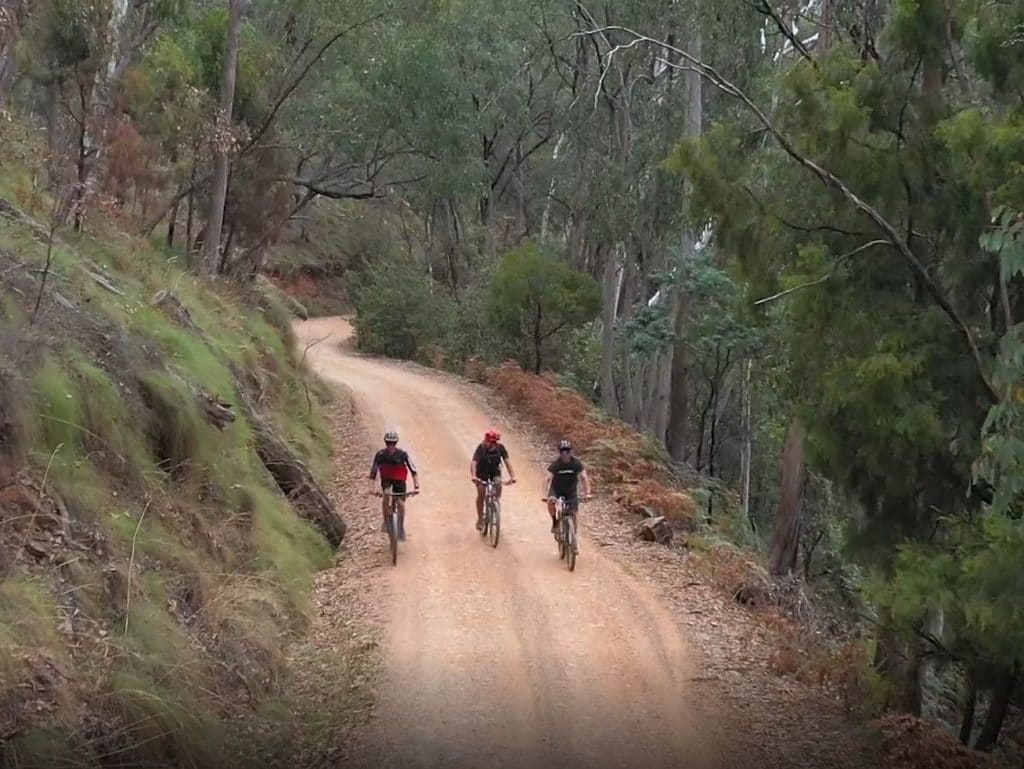
GRAVEL
WE’VE GOT MILES OF IT
Forest roads, alpine tracks, rolling farmland and mountain tops. Pack your saddle bag because it’s time to grind.
TRIP IDEAS
ITINERARIES TO SUIT YOUR STYLE
Choose from 10 two-day itineraries to inspire your holiday, including scenic drives, swimming holes, breweries and adventures.
